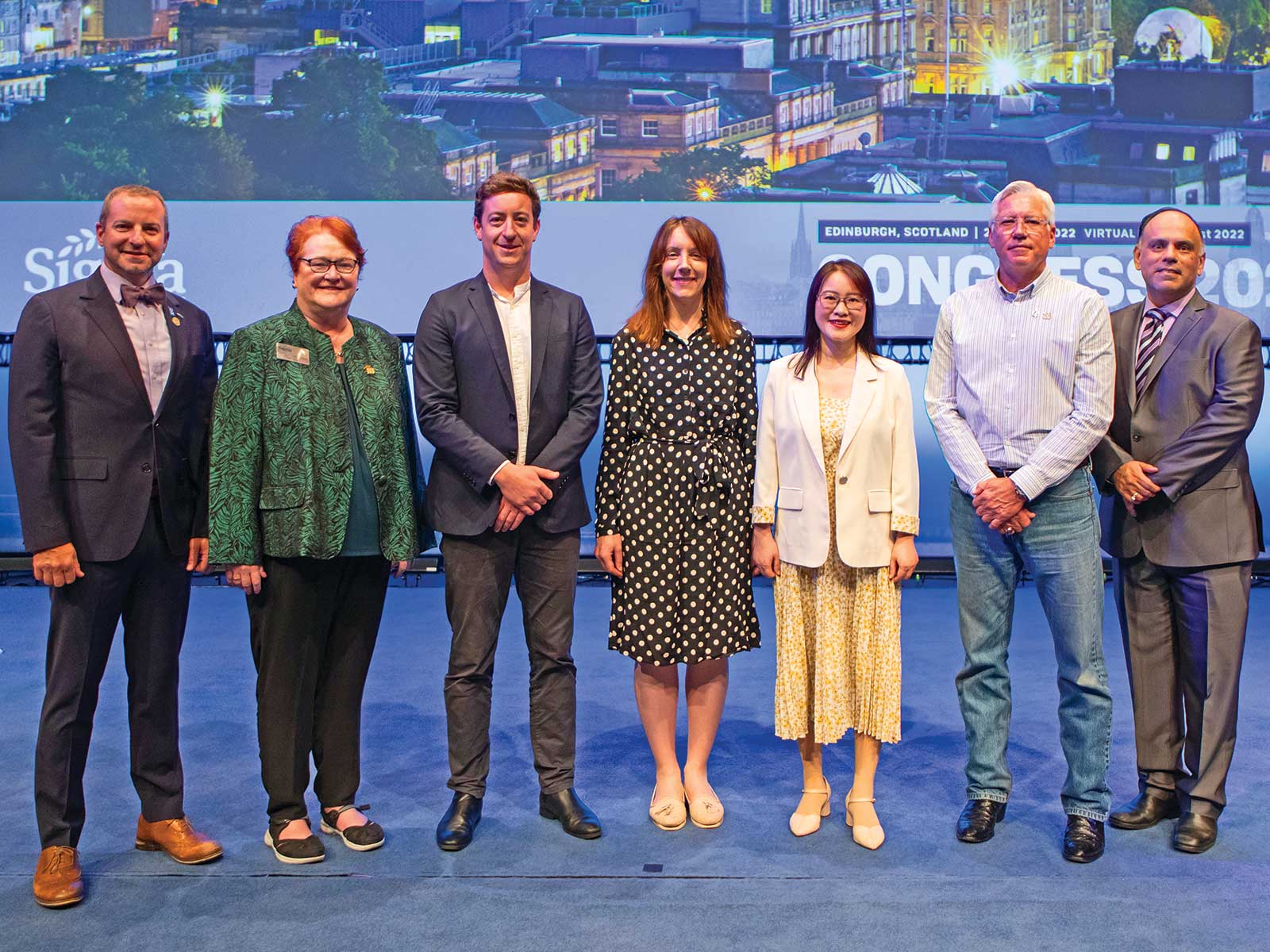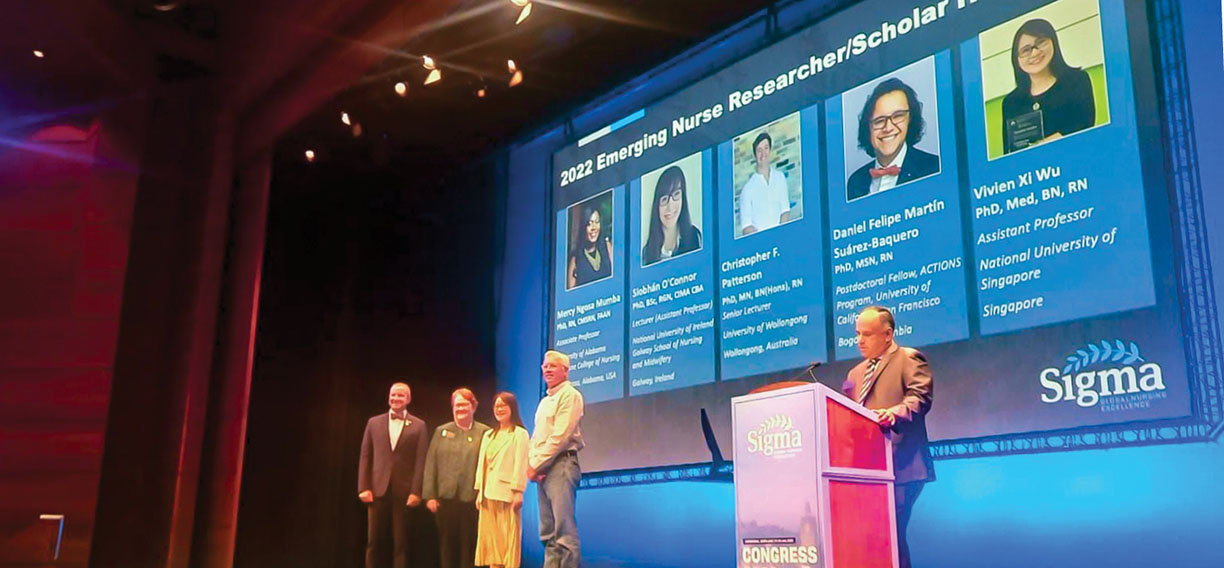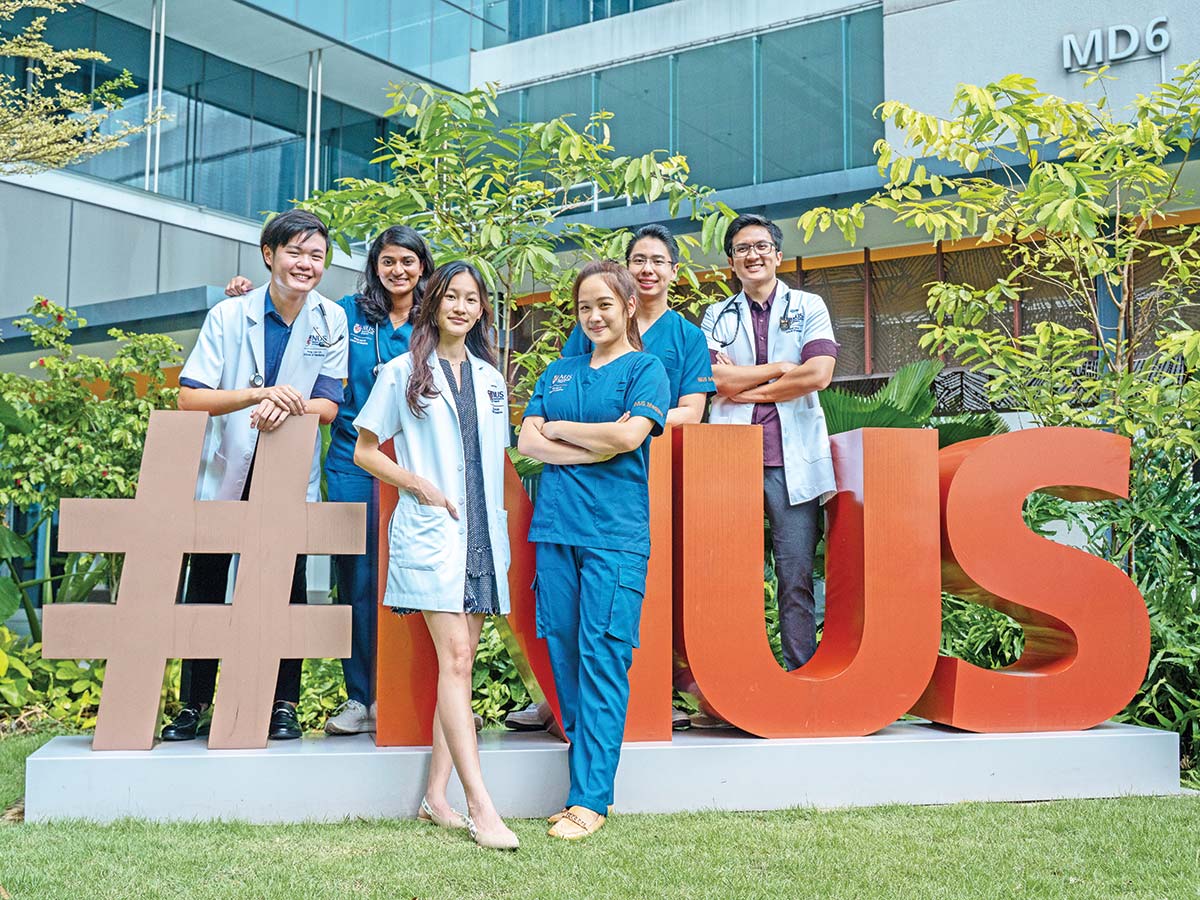
Issue 45
Jan 2023
NURSING

Promoting healthy ageing in the community through intergenerational programmes, developing a competent healthcare workforce and enhancing nursing education. These are some facets of Assistant Professor Vivien Wu Xi’s research in the Nursing sector that have gained international recognition, making her one of five winners for a prestigious global award.
The National University of Singapore Alice Lee Centre for Nursing Studies (NUS Nursing) researcher received the 2022 Emerging Nurse Researcher/Scholar Award in July this year, at the Sigma Theta Tau International Honour Society of Nursing’s 33rd International Nursing Research Congress.
“It is not about my name, my name is small, but hearing the announcement made me really proud that Singapore is represented on this international platform,” says Asst Prof Wu. She is Singapore’s first recipient of this award.
The award was created in 2015 to recognise early-career nurse researchers and scholars whose work has influenced the profession and the people it serves.
Asst Prof Wu, a Nursing sector veteran with more than two decades of working experiences, was one of five awardees who each represented a geographic region—Asia, Europe, Latin and South America/Caribbean, North America and Oceania.
Speaking about her research on community-based e-health programmes for older adults living with chronic diseases, Asst Prof Wu said Singapore is a place where Nursing initiatives can take root and grow. This boils down to efforts by the government in promoting digital literacy for the older population, along with a supportive social-cultural environment. She cited research findings that show many still require training and support to use the various e-health platforms despite a rapid increase in the number of older people going online.

Assistant Professor Vivien Wu Xi (third from left) receiving the 2022 Emerging Nurse Researcher/Scholar Award.
These telehealth applications have supported healthcare workers during the COVID-19 pandemic, noted Asst Prof Wu, while also facilitating the care of older adults and ensuring they comply with the treatment. She added that older adults are also concerned about barriers such as a lack of access to technology—something which can be overcome with volunteers’ support in the community. To further develop the field of Nursing research, there has to be a stronger focus on mentorship and peer support programmes, said Asst Prof Wu.
Reflecting on her own career, she shared that she had benefited from the advice, resources and ideas of more experienced senior academics and researchers over the years. Now she proactively steps up and gives back to the Nursing community by mentoring junior researchers. Asst Prof Wu currently leads a research team consisting of research assistants and graduate students. She explained that studies had shown that mentoring and peer support improve research productivity and the overall well-being by providing a supportive learning environment.
“I know I need to serve sincerely, with heart, and to nurture and develop our young talents. In this journey, I have also developed my mentorship and leadership skills in nurturing the next generation of nurse leaders in research and education.”
She noted, however, that the infrastructure for Nursing research in many countries is still developing. “Postdoctoral Nursing researchers generally work in different fields or contexts, combining their work in research, education and other fields.”
It is not about my name, my name is small, but hearing the announcement made me really proud that Singapore is represented on this international platform.”
They also face challenges developing and sustaining careers in the field, due to lack of career opportunities, she added.
Asst Prof Wu is currently focusing her research on programmes that promote healthy longevity for the older adults in Singapore. She aims to help this vulnerable group better self-manage their chronic conditions by tapping on the power of technology.
“World ageing has become one of the most significant social issues in the 21st century. A large proportion of older adults are living with multiple chronic diseases, and managing their health in the community is a major public health concern.”
She stressed the need for academics to work in close collaboration with community partners to create and sustain healthy ageing programmes and enhance the physical, mental, cognitive and psycho-social well-being of the older adults in society.
Citing the support from her peers and colleagues, Asst Prof Wu said she was honoured to receive the Emerging Nurse Researcher/Scholar Award and believed her work would have real impact for society.
She thanked NUS Nursing head Professor Emily Ang and other senior colleagues, along with her research team members, for their insights, experiences and hard work in contributing to research efforts. She also expressed her gratitude to the older adults and staff in the community, who supported and believed in her team’s work and mantra.
“I am glad to be able to make an impact on the global platform through my research,” said Asst Prof Wu.
“I am confident that my research work will continue to promote the physical, cognitive, mental and psycho-social well-being of older adults and professional development for nurses.”
More from this issue

A WORLD IN A GRAIN OF SAND
Can the Majestic Gut Microbiome Reveal Lessons on Leadership?


